The American Revolution occurred due to an ongoing conflict between the British monarchy and a crucial part of the British North American colonies.
The main reason for the war was British attempts to impose greater control over colonial affairs after years of constructive neglect.
France and Spain joined the colonies in their fight against Britain in 1788. The Netherlands, which had given the United States official recognition and financial backing, also fought Britain in its war.
Annihilating the rebel army, giving the colonies Parliamentary representation, allowing free trade, and revoking the Proclamation of 1763 were the British approaches that worked.
The war could have been prevented if the British monarchy had taken these actions beforehand.
What could have been done to prevent the American Revolution?
Content
The American colonists were ecstatic after the Seven Years’ War.
Suppose the British had not kept such a tight grip on the colonists, given their representation in parliament and the passionately desired birthrights. In that case, the American Revolution might have been avoided.
What were five measures passed by the British government that resulted in the American Revolutionary War in 1775?
The five measures were The Revenue Act of 1767, the Indemnity Act, the Commissioners of Customs Act, the Vice-Admiralty Court Act, and the New York Restraining Act.
How did the British government react to the American Revolution?
The British population was initially hostile to the colonial insurgents as their king.
After the Boston Tea Party, King George III sought harsher, more coercive tactics against the colonists, believing that lax British control was to blame for the rising tensions in North America.
Causes of the American Revolution
1. Early seeds
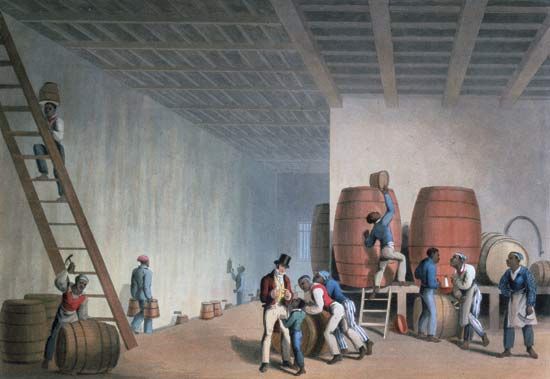
In 1651, the British government planned to restrict trade in American colonies, which the Navigation Acts further solidified. This act ensured merchant policy in Great Britain while prohibiting trade with other countries.
Tobacco cultivation was prohibited in Britain, and shipbuilding was encouraged in the New England colonies.
Various laws were created to control the trade in wool, hats, molasses, etc., to imply tax on those items. The Molasses Act, in particular, was offensive to the colonists, as molasses was used in a substantial portion of colonial trade.
Acts of smuggling, bribery, and intimidation of customs agents increased as the economy of New England was affected by taxes.
2. Taxes are imposed and withdrawn
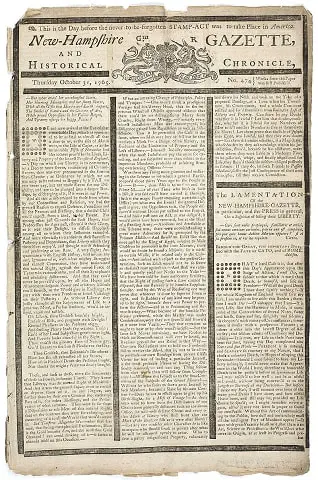
In 1764, the English government passed the Sugar Act reducing the charges on sugar and molasses. In an attempt to raise the revenue, Prime Minister George Grenville recommended imposing taxes on the colonies.
The Stamp Act passed in 1765 imposed direct taxes on the colonies, which stated the stamps required on all official documents, newspapers, booklets, and even decks of playing cards.
The colonists did not complain about the high but instead complained about their lack of representation in parliament, which left them without a say in legislation affecting them.
On the other hand, the crown had to cope with around fifteen-hundred British Army commanders after the conflict. It was decided to maintain them on active duty with full pay, so they were stationed in America, and the Americans were to pay for them through the new tax.
After the Stamp Act was passed, the Sons of Liberty were created, which employed public rallies, boycotts, and threats of violence. These were done in attempts to guarantee that British tax laws were unenforceable.
In October, nine colonies sent delegates to the Stamp Act Congress, and moderates led by John Dickinson drafted a Declaration of Rights and Grievances.
They stated that taxes imposed without representation infringed on their rights as Englishmen. The colonists demonstrated their resolve by boycotting British goods.
3. Townshend Acts and the Tea Act
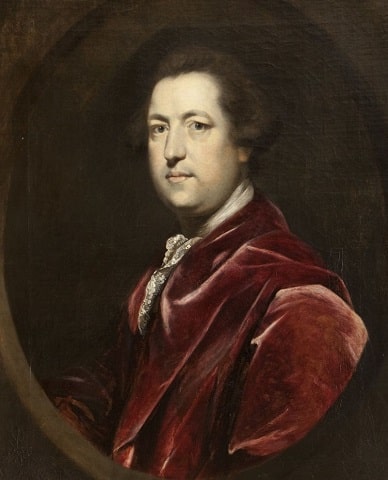
The Townshend Acts imposed charges on regularly used items such as paper, glass, and tea and established a Board of Customs in Boston to enforce the trade laws.
In protest, colonists implied boycotts of British products. However, because the items were widely used, these boycotts were ineffective.
The Massachusetts Bay Assembly sent a circular letter to the other colonies asking them to coordinate opposition, but it was soon dissolved when the legislature refused to withdraw the letter.
When the First Continental Congress resolved to boycott British goods, the colonial and local Committees took command. They published the names of merchants who tried to evade the boycott by bringing British goods into the country.
Meanwhile, the Tea Act was passed to reduce the price of taxed tea exported to the colonies. This allowed the British East India Company to compete with smuggled Dutch tea and avoid colonial merchants; special consignees were appointed to sell the tea.
4. Intolerable Acts and the Quebec Act
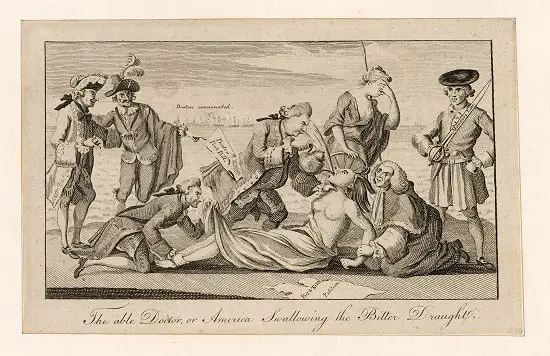
The British government retaliated by adopting a series of laws made up of four pieces of legislation known as the Intolerable Acts, which further agitated the colonists.
The Massachusetts Government Act changed the Massachusetts charter and limited town meetings. The Administration of Justice Act made the British soldiers face the trial in the United Kingdom and not in the colonies.
The Boston Port Act shut down Boston’s port until the British were compensated for the tea lost in the Boston Tea Party. The Quartering Act permitted British troops to stay in citizens’ homes without the owner’s permission.
As a result, Massachusetts patriots established the Provincial Congress, which trained soldiers outside Boston.
The British government could have stopped the American Revolution in several ways.
How could the American Revolution have been prevented?
The British government could have stopped the American Revolution in several ways. Here are a few examples:
1. The British authorities might have allowed colonists to choose their representatives.
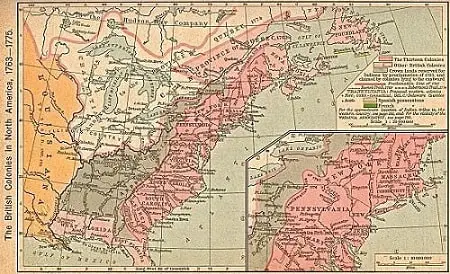
The colonists had no members in the British Parliament, which resulted in difficulty communicating their grievances to the administration.
They asked the British government to provide American representation in the English Parliament on various occasions, but Britain consistently turned them down.
A series of critical events eventually led to the American Revolution.
2. The British government could have prevented cruel acts against the Thirteen Colonies.
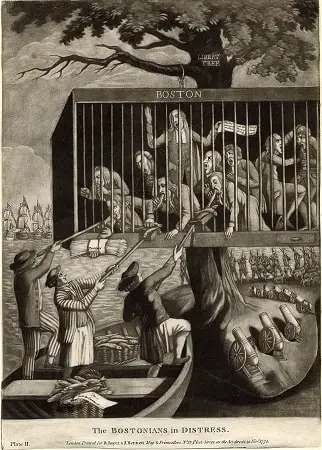
The British Parliament passed and imposed many acts against their welfare which enraged colonists to the maximum extent. The five Intolerable Acts was the final push to adopt the path of revolution and consider total independence.
These are the five cruel acts:
· Boston Port Act
· Massachusetts Government Act
· Administration of Justice
· Quebec Act
· Quartering Act
These are the five cruel acts:
· Boston Port Act
· Massachusetts Government Act
· Administration of Justice
· Quebec Act
· Quartering Act
3. The British authority could have accepted negotiation proposals.
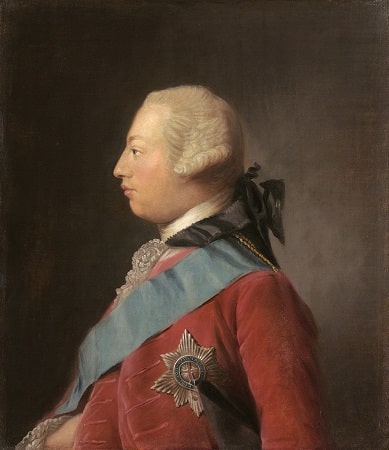
During the First and Second Continental Congresses, American colonies submitted negotiation offers to British King George III and the parliament, including Petition to the King and Olive Branch Petition.
Accepting these recommendations would have addressed the situation for the British government. However, they showed little interest in them. Even King refused to read the Olive Branch Petition, declaring colonists traitors, further enraged them.
Conclusion
Almost definitely, the Revolutionary War might have been avoided if the British administration had given the colonists representation in parliament, even if it was only symbolic.
The limitation on commerce with France was another point of controversy where Britain desired to retain all American trade.
According to popular belief, the revolution had little to do with liberty and even less with guns. It was primarily motivated by a tax revolt.
If Britain had been able to obtain French neutrality, it might have prevailed as it stopped the British fleet from resupplying the British army. France played a crucial role in the triumph of the United States.
If Cornwallis had been able to contact the British fleet, he would not have had to surrender at Yorktown. The British might have won if the French had kept out of it.
